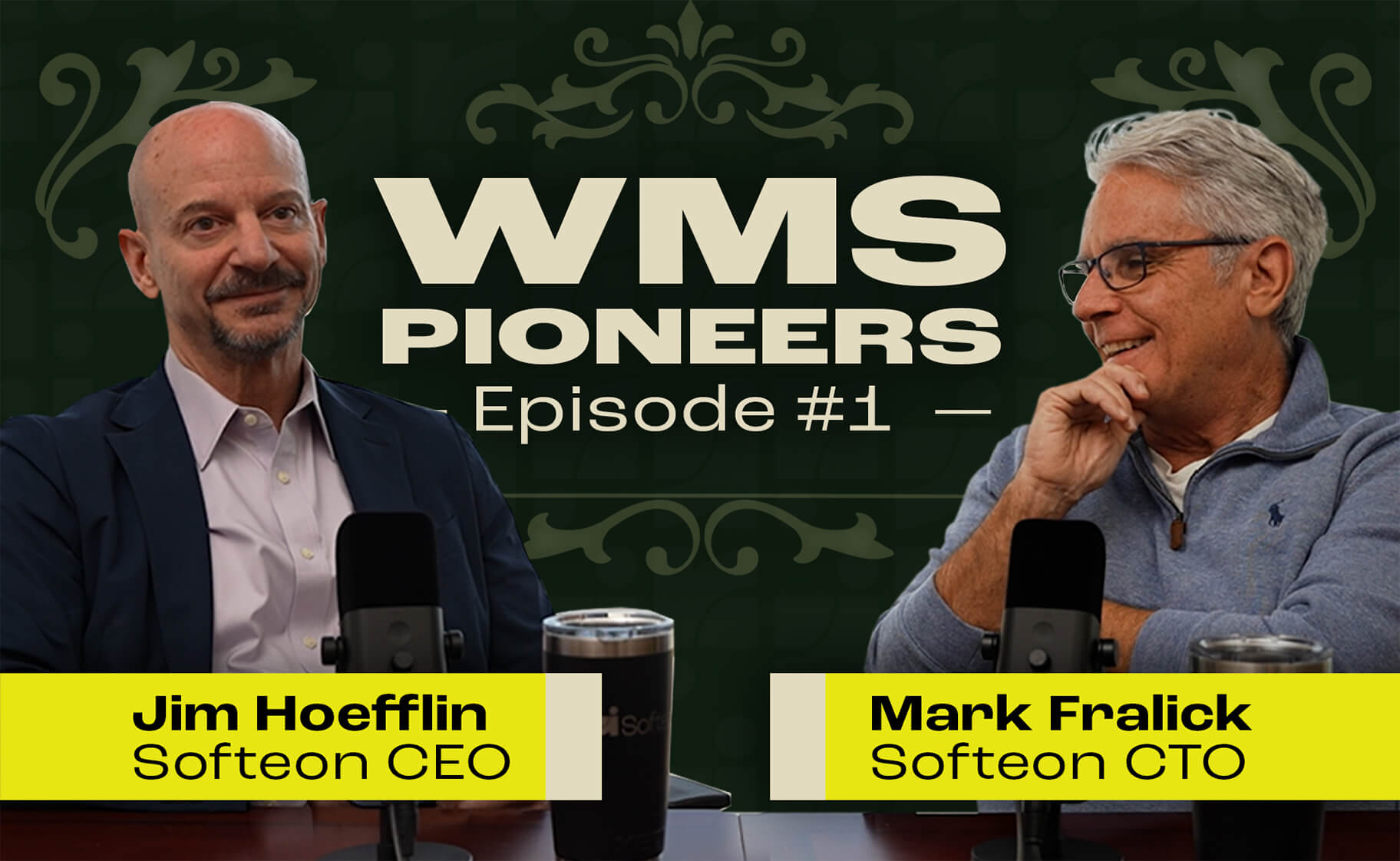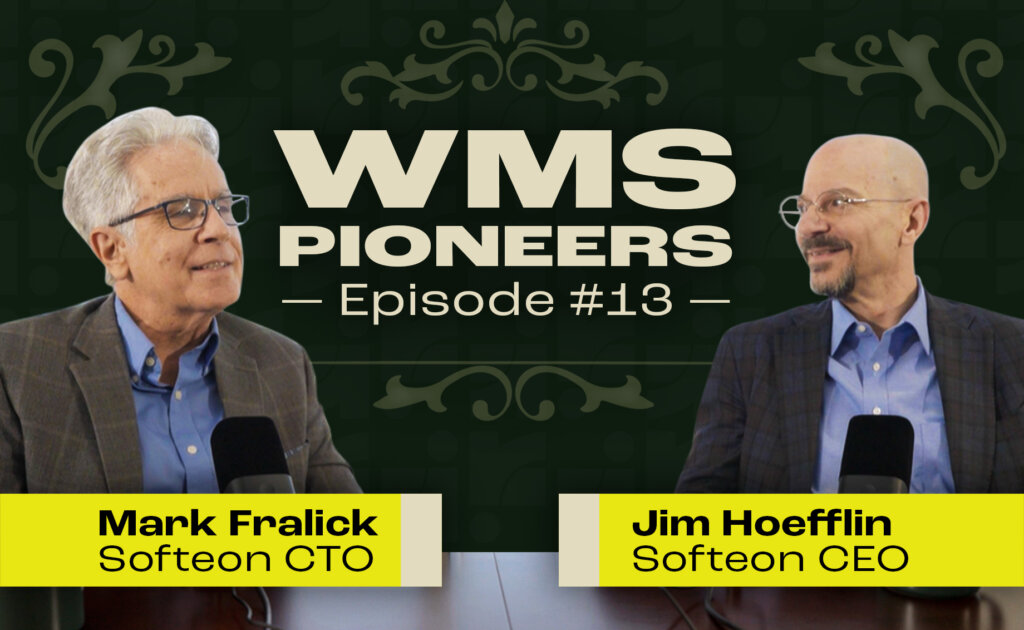We know, another podcast – but we promise the founding fathers of the Warehouse Management System are worth a listen! From funny stories about accidentally shaving their hair to how their guiding principles are solving today’s warehouse problems, you won’t want to miss this.
“Brothers from different mothers” as they describe it, Softeon CEO Jim Hoefflin and CTO Mark Fralick have worked together over the last 35 years. The duo, known at Softeon as “WMS Pioneers” developed one of the first Warehouse Management Systems (WMS) in 1993 after realizing there was a market shaping.
“We were literally the first large scale WMS implementation on PC platform. It was a massive building at the time – it was unheard of,”
Mark Fralick | CTO at Softeon
The idea, mapped out on the back of a beer coaster, has been used for the last 30 years to describe how you do a WMS system.
“We started talking about how we could do this differently and that is the night we came up with the concept that is now known as ‘MOCA’, this architecture that allows you to sort of define interactions the way that you can logically think about them, but in a way that is not so caught up in code.”
“It was born out of the business problem, which was no matter where we went, we saw the logistics world being able to map a solution to the operation,” says Softeon CEO, Jim Hoefflin. You could only get 90% of the way there through configurations and switches and then you were stuck. So we said, how do we unstick.”
“The challenge we had with the technology that was available back then, you could only be so good at creating that platform. It’s like a piano, if you know how to play, it’s beautiful. If you don’t, you’re just whacking at it. The beautiful thing is technology has evolved a long way and what we can do this time around is widen the audience of people that can be successful.”
“I wish we had the technology we have now back then because it would have been so much easier. Talk about being a pioneer.”
Mark Fralick | CTO at Softeon
To learn more about how Hoefflin and Fralick’s operational mindset combined with their philosophical approach has served as the underlying driver for their success over the years, subscribe on Spotify, YouTube, or other popular podcast channels.




